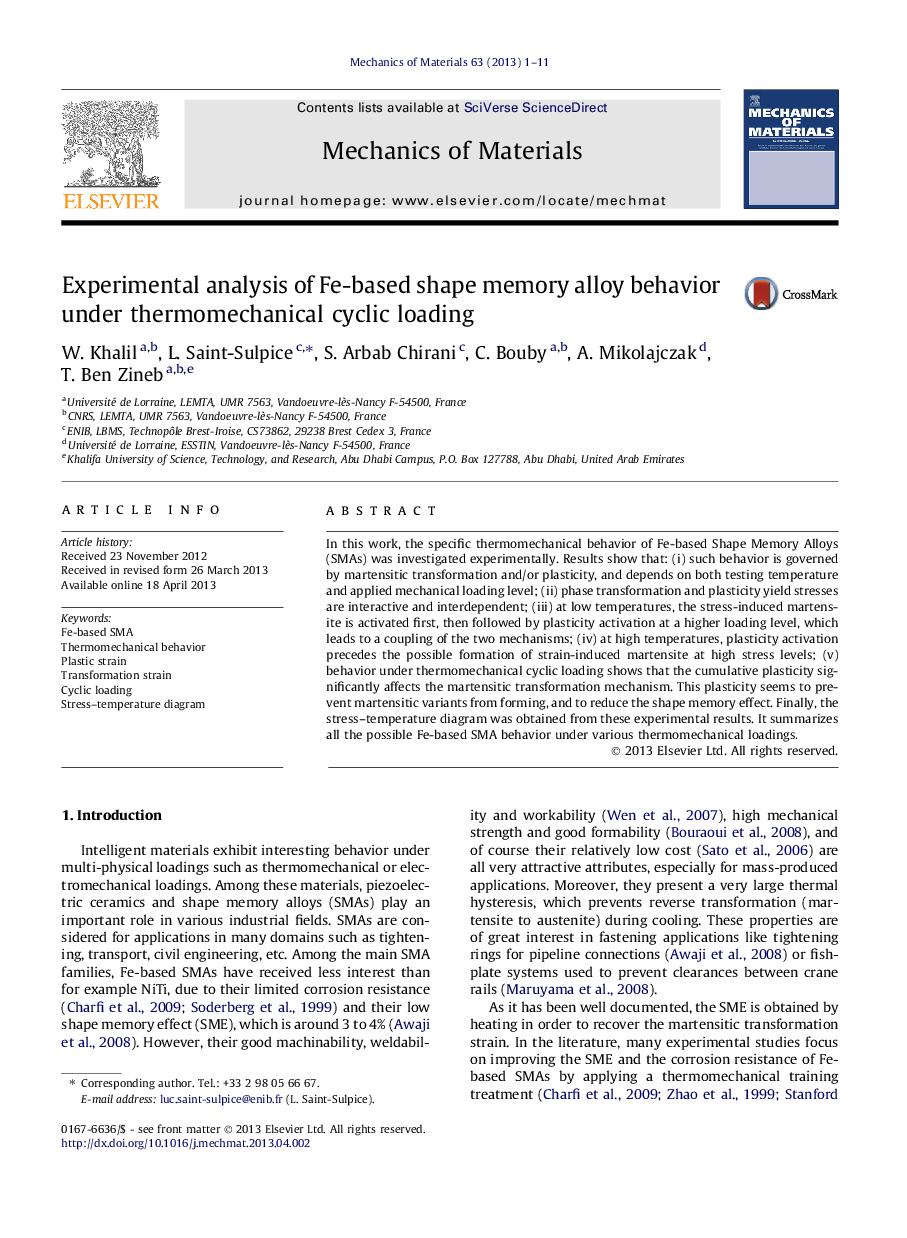| Article ID | Journal | Published Year | Pages | File Type |
|---|---|---|---|---|
| 802839 | Mechanics of Materials | 2013 | 11 Pages |
•The thermomechanical behavior of an Fe-based SMA was experimentally investigated.•Plasticity and phase transformation coupling depends on temperature and stress level.•Stress-induced martensite is obtained at low temperature followed by plasticity.•At high temperature, first plasticity takes place then martensite is formed.•Plasticity accumulation prevents the development of phase transformation.
In this work, the specific thermomechanical behavior of Fe-based Shape Memory Alloys (SMAs) was investigated experimentally. Results show that: (i) such behavior is governed by martensitic transformation and/or plasticity, and depends on both testing temperature and applied mechanical loading level; (ii) phase transformation and plasticity yield stresses are interactive and interdependent; (iii) at low temperatures, the stress-induced martensite is activated first, then followed by plasticity activation at a higher loading level, which leads to a coupling of the two mechanisms; (iv) at high temperatures, plasticity activation precedes the possible formation of strain-induced martensite at high stress levels; (v) behavior under thermomechanical cyclic loading shows that the cumulative plasticity significantly affects the martensitic transformation mechanism. This plasticity seems to prevent martensitic variants from forming, and to reduce the shape memory effect. Finally, the stress–temperature diagram was obtained from these experimental results. It summarizes all the possible Fe-based SMA behavior under various thermomechanical loadings.
